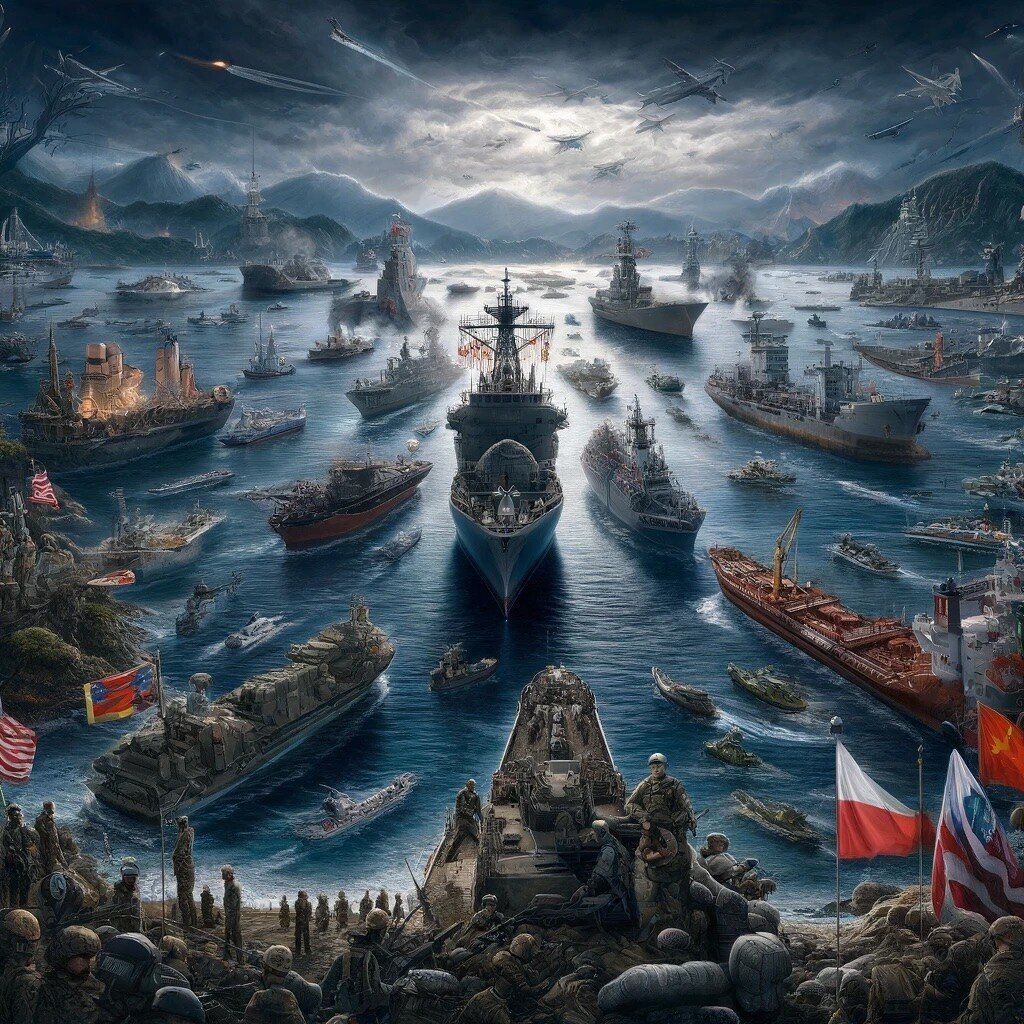The shifting dynamics of geopolitics are extending their reach to the seas, amplifying concerns over maritime security.
While maritime crime remains a focal point, recent years have witnessed a surge in geopolitical tensions manifesting in power projection through regional waterways. State and non-state actors are increasingly flexing their muscles, employing control and coercion tactics short of outright warfare.
State actors like China and Iran have raised alarms with their activities in the South China Sea and the Strait of Hormuz, respectively, challenging international law and disrupting trade routes. Similarly, Russia's aggressive behavior has led to international responses, including its removal from maritime organization boards. Meanwhile, non-state actors like al Shabaab and the Houthi militia are exploiting maritime domains for their agendas, escalating violence and instability in regions like the Red Sea.
These trends are expected to persist, driven by shifts in international relations where trade, energy, and political influence are wielded as geopolitical tools. This poses multifaceted challenges, complicating traditional approaches to maritime security and undermining existing cooperation frameworks. As maritime spaces become arenas for political contestations, policy and operational voids emerge, leaving resources vulnerable to exploitation by various actors.
In an African context, maritime security efforts guided by regional strategies face additional hurdles. Despite partnerships with entities like Denmark and the EU, governance inconsistencies persist, allowing maritime crimes to thrive, hindering progress towards sustainable development goals. Moreover, emerging geopolitical dynamics, exemplified by the Houthi militia's actions in the Red Sea, threaten to exacerbate existing challenges, necessitating tailored responses.
External actors, including Russia, China, and Gulf states, are increasingly shaping maritime agendas in Africa, presenting both opportunities and risks. While partnerships offer avenues for capacity-building, they also raise concerns about ulterior motives and alignment with Western interests. Additionally, shifting narratives of African agency and self-determination may complicate cooperation efforts, highlighting the need for nuanced engagement strategies.
To address these evolving threats, Danish policy must adapt, focusing on encouraging agency while fostering durable partnerships. This requires a shift towards more flexible and elaborate responses, moving beyond conventional approaches to encompass broader governance and diplomatic considerations. Moreover, efforts should avoid over-securitizing the maritime domain, ensuring alignment with broader environmental and climate agendas crucial to African governance and livelihoods.





